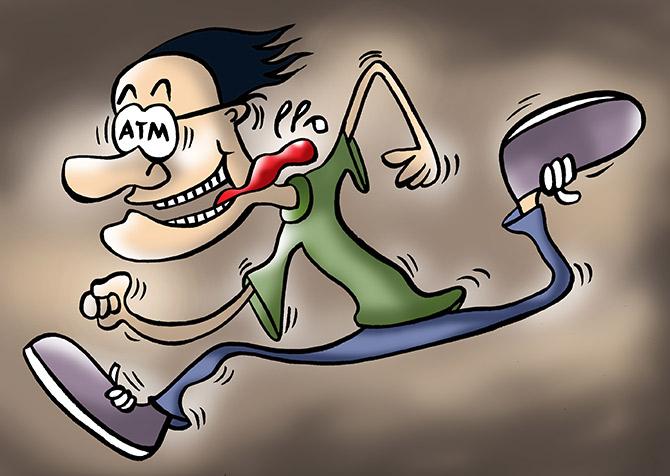Customers will now get to smell and feel better quality notes when they withdraw from ATMs even as it cuts down on counterfeits, discrepancies in the accounting (of cash), and aligns the country’s cash-moving business with global standards.
Raghu Mohan reports

cassette-swap mode with an initial four-phased roll-out across 30 cities from June 1.
The lockable cassette-swap will do away with the current practice of open-cash replenishment into ATMs.
Cash-in-transit (CIT) firm personnel, tasked with loading cash into ATMs, will not have to touch it anymore.
Cash-handling will be done by CITs at the cash centre, and the task of taking into account the amount of cash remaining from the last cassette-load will also be made simpler.
Customers will now get to smell and feel better quality notes when they withdraw from ATMs even as it cuts down on counterfeits, discrepancies in the accounting (of cash), and aligns the country’s cash-moving business with global standards.
In the new system, only fit-for-ATM notes will be used and counterfeits will be weeded out.
The move to activate cassette-swaps comes on the back of two extensions by the Reserve Bank of India (RBI), to end-March of 2022 and 2023.
This was due to the inability of banks, CITs, and managed service providers to arrive at a consensus on its execution, and absorption of costs in the ecosystem.
The cost of each cassette ranges from Rs 12,000 to Rs 15,000 and its procurement in huge quantities was seen as a burden.
With demands by banks for another extension to end-March 2024 gaining ground, the RBI held a stock-taking meeting with the Cash Logistics Association (CLA).
Business Standard has learnt that the RBI had “conveyed to banks” that it would have preferred a better ground report.
"The CLA, on its part, had submitted a “confidential update,” to the banking regulator, which set up an “internal committee” to monitor developments.
The decision to switch to cassette-swap model flows from the D K Mohanty Committee on Currency Movement set up in October 2016, to examine and mitigate the risks arising from open-cash replenishment.
On April 12, 2018, the central bank asked banks to shift to lockable cassettes in phases, covering at least a third of the ATMs, so that all ATMs achieve cassette swap by March 2021.
The new protocol entails investments as supplementary cassettes will be needed instead of using the same cassette.
It may also lead to fresh demands for hiking the interchange fee beyond five free transactions at ATMs from the current Rs 17 made in 2022.
This was an upward revision by Rs 2 in over a decade.
The silver lining is that of the installed base of 250,000 ATMs, nearly 20 per cent are recyclers that not only dispense cash but also allow you to deposit it in them.
While recyclers come for about Rs 5.50 lakh each compared to Rs 3 lakh for the ubiquitous cash-vending ATM, the bet is that they may, over time, reduce the cost of cash loading.











